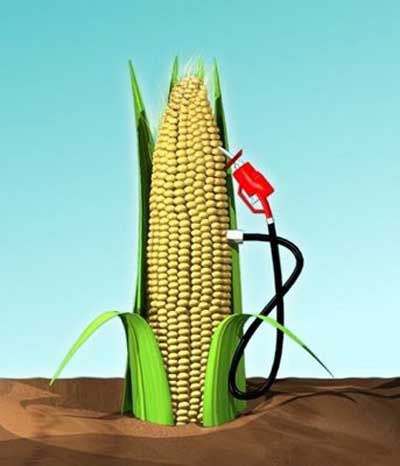Ethanol continues to be a political football, with the alcohol fuel coming under fire from the auto industry, environmental pressure groups, and others.
The latest to line up against the corn-based fuel is a coalition of industrialized livestock and poultry producers that might collectively be called Big Food.
And it last week, it released a study supporting its campaign to get Congress to modify the Renewable Fuel Standard it passed Congress in 2007.
The study, The RFS, Fuel and Food Prices, and the Need for Statutory Flexibility, found that the ethanol mandate has destabilized prices of corn, soybeans, and wheat, causing them to rise, which hurts producers and consumers of food and fuel.
It also found that U.S. oil imports have declined not because of increased ethanol production, but resulting from increased domestic crude oil production and higher gasoline and distillate fuel oil yields.
The study was produced by FarmEcon LLC, an Indiana agricultural and food industry consulting firm.
It was funded by the American Meat Institute, California Dairy Inc., the Milk Producers Cooperative, the National Cattlemen’s Beef Association, the National Chicken Council, the National Pork Producers Council and the National Turkey Federation.
To reinforce its case, the coalition released to the media a tidy little infographic showing all the bad things it has identified about ethanol--based largely on the results of the study.
Separately, a paper published by a pair of professors from the Massachusetts Institute of Technology and the University of California--Davis concludes that increased ethanol production has not cut gasoline prices.

Corn Ethanol Pump
The study, Ethanol Production and Gasoline Prices: A Spurious Correlation, says bluntly in its summary:
Some proponents of ethanol have argued that ethanol production greatly lowers gasoline prices, with one industry group claiming it reduced gasoline prices by 89 cents in 2010 and $1.09 in 2011. The estimates have been cited in numerous speeches by Secretary of Agriculture Thomas Vilsack. These estimates are based on a series of papers by Xiaodong Du and Dermot Hayes. We show that these results are driven by implausible economic assumptions and spurious statistical correlations.
The pair of new studies follows on the heels of a separate May report that concluded it may be impossible to use the volumes of renewable fuels required by the 2007 act.
The 2007 regulations require 36 billion gallons of ethanol to be included in U.S. vehicle fuel by 2022--a volume more than three times the 11.1 billion gallons used in 2010. For 2015, the requirement is 15 billion gallons.
With U.S. gasoline usage falling steadily due to more fuel efficient vehicles, is ethanol an alt-fuel whose time has come and gone?
Leave us your thoughts in the Comments below.
+++++++++++













